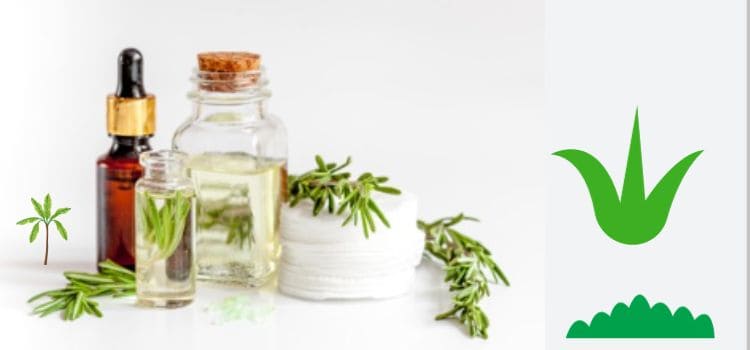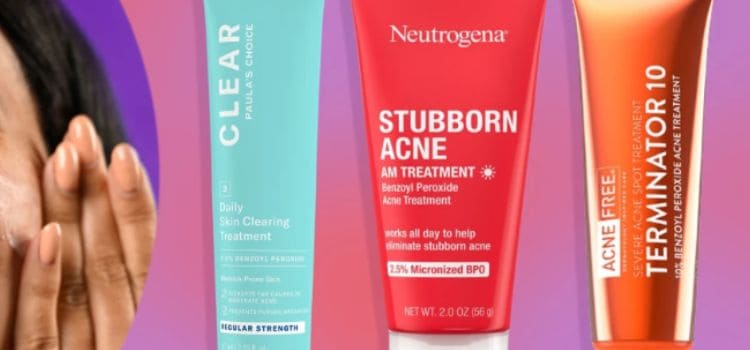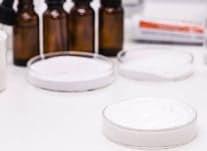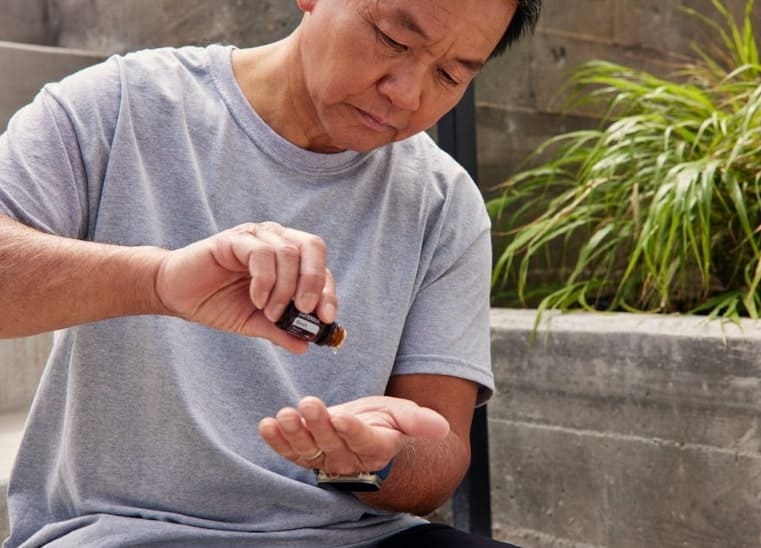As an Amazon Associate, I earn from qualifying purchases

Tea tree oil and benzoyl peroxide are frequently incorporated into acne treatments due to their distinct characteristics and smash on the skin. Tea tree oil, a natural substance, possesses antimicrobial and anti-causing inflammation properties, contributing to its effectiveness in addressing skin problems.
Tea Tree Oil vs Benzoyl Peroxide
It has the potential to diminish redness and inflammation linked to acne, and it might also exhibit antibacterial effects. Contrarily, benzoyl peroxide, a synthetic component, is recognized for its potent antibacterial possession.
It is can kill the bacteria that contribute to acne breakouts and help unclog pores. It also has a drying effect on the skin, which can be helpful for reducing oiliness. When choosing between tea tree oil and benzoyl peroxide, it’s important to consider your skin type and any sensitivities you may have.
What is tea tree oil?(Tea Tree Oil vs Benzoyl Peroxide)

It has been used for centuries for its medicinal properties, particularly in skincare and beauty products. Tea tree oil is known for its antibacterial and anti-inflammatory properties, making it an effective treatment for various skin conditions,
Including:
What is tea benzoyl peroxide?
Benzoyl peroxide is a chemical compound that is commonly used in acne treatment products.It operates by diminishing the quantity of bacteria responsible for acne on the skin and assisting in the clearance of clogged pores. Benzoyl peroxide is known for its effectiveness in treating acne, particularly mild to moderate cases.
It comes in various potencies, ranging from 2.5% to 10%, and is accessible in diverse formulations, including gels, creams, and washes.
Tea Tree Oil vs Benzoyl Peroxide Comparison 2023
Product Name | Brand | Scent | Special Feature | Product Benefits | Seasons | Price |
Australian Tea Tree Oil for Skin, Hair, Face & Toenails-0.34 fl oz) | Gya Labs | Tea Tree (Supreme) | Scented, Aromatic, Aromatherapy, Natural Ingredients, Skin Safe | Hair,Cleansing,Skin | All-Season, Summer, Fall, Spring | |
Tea Tree Essential Oil, Premium Grade, Pure and Natural | MAJESTIC PURE | Tea Tree | Undiluted | Aromatherapy,Soothing | All Seasons | |
Tea Tree Oil 30 ml - 100% Natural, Pure Essential Oil for Hair | Nexon Botanics | Tea Tree | Undiluted | Anti-Acne,Aromatherapy,Soothing | All Seasons | |
100% Pure Australian Tea Tree Essential Oil with high conc | First Botany | Tea Tree | Undiluted, Pure | Anti-Acne | All Seasons | |
100% Pure, Tea Tree Essential Oil - (4 Fl Oz / 120 ml) | NaturoBliss | Tea Tree | Undiluted | Smoothness | All Seasons | |
Product Name | Brand | Scent | Material Type Free | Product Benefits | Item Form | Price |
Stubborn Acne AM Face Treatment with 2.5% Micronized Benzoyl Peroxide-Paraben-Free, 2 oz | Neutrogena | Unscented | Paraben Free | Anti Acne | Cream | |
Benzoyl Peroxide 10% Maximum Strength Antimicrobial, 5.5 Oz | PanOxyl | Unscented | Non Comedogenic | Acne Prone | wash | |
Gentle Face and Body Acne Cleanser with Benzoyl Peroxide 10%, | CeraVe | Fragrance Free | Paraben Free, Non Comedogenic | Oily, Acne Prone Skin | Foam | |
Face Wash with 5% Benzoyl Peroxide, Daily Deep Cleanser | Differin | Light Scent | Moisturizing | Sensitive | Gel |
Benefits and Uses of Tea Tree Oil

Tea tree oil is a popular natural remedy that has been used for centuries due to its numerous benefits and uses. One of its most well-known uses is for skincare, particularly in treating acne. Many people compare tea tree oil to benzoyl peroxide, a common ingredient found in acne medications. While both can be effective in treating acne, there are some key differences between the two.
Tea tree oil is a natural substitute recognized for its antibacterial and anti-inflammatory characteristics. It can help reduce inflammation, kill bacteria, and unclog pores, making it an effective treatment for acne. On
Benefits and Uses of Benzoyl Peroxide

Benzoyl peroxide works by killing the bacteria that cause acne, reducing inflammation, and helping to unclog pores. Its efficacy extends to addressing mild to moderate acne, encompassing conditions like whiteheads, blackheads, and inflamed pimples.Benzoyl peroxide can also help to prevent future breakouts and improve the overall appearance of the skin.
Comparison of Effectiveness and Side Effects
When it comes to treating acne, benzoyl peroxide is known for its effectiveness. It has been proven to reduce inflammation, kill bacteria, and unclog pores, making it a reliable treatment option for acne. However, it is important to note that benzoyl peroxide can cause some side effects, especially if not used correctly.
Potential side effects may encompass skin dryness, redness, and peeling. To minimize these side effects, it is recommended to start with a lower strength product and gradually increase the strength if needed.
Additionally, it is always wise to consult with a dermatologist before incorporating benzoyl peroxide into your skincare routine to ensure it is the right choice for your specific needs.
Choosing the Right Option for Your Skin Type
When it comes to treating acne, it’s important to choose the right option for your skin type. One effective treatment option is benzoyl peroxide. It has been proven to be effective in treating mild to moderate acne, including whiteheads, blackheads, and inflamed pimples. Benzoyl peroxide works by reducing inflammation, killing bacteria, and unclogging pores, which can help improve the overall appearance of the skin.
However, it’s important to note that benzoyl peroxide can cause some side effects, especially if not used correctly. Possible side effects can involve skin dryness, redness, and peeling. To minimize these side effects, it is recommended to start with a lower strength product and gradually increase the strength if needed. It’s also important to follow the instructions provided by the product and to consult with a dermatologist before incorporating benzoyl peroxide into your skincare routine.
It’s also worth considering your specific skin type when choosing a treatment option. Different people have different skin types, and what works for one person may not work for another. Consulting with a dermatologist can help you determine the best option for your specific needs and ensure that you are using the right product for your skin type.
Tips for Using Tea Tree Oil and Benzoyl Peroxide Safely

Tea tree oil and benzoyl peroxide are both commonly used ingredients in skincare products for treating acne. However, it’s important to note that these ingredients can cause some side effects, especially if not used correctly. It’s always recommended to start with a lower strength product and gradually increase the strength if needed. This will help minimize potential side effects such as dryness, redness, and peeling of the skin.
When using benzoyl peroxide, it’s crucial to follow the instructions provided by the product. It’s also a good idea to consult with a dermatologist before incorporating benzoyl peroxide into your skincare routine. Tailored guidance can be offered, taking into account your individual skin type and requirements. Different people have different skin types, and what works for one person may not work for another. A dermatologist can help determine the best option for you and ensure that you are using the right product for your skin type.
Concerning tea tree oil, it’s crucial to dilute it consistently before application to the skin. Pure tea tree oil can be too harsh and may cause irritation. Diluting it with a carrier oil, such as jojoba oil or coconut oil, can help reduce the risk of skin irritation. It’s also recommended to do a patch test before applying tea tree oil to a larger area of the skin. This involves applying a small amount of diluted tea tree oil to a small area and checking for any adverse reactions.
Do you need to dilute the tea tree oil?
Tea tree oil is a popular essential oil that is known for its antibacterial and anti-inflammatory properties. It can be used for various purposes, including skincare, haircare, and even as a household cleaner. However, it is important to understand the proper usage and dilution of tea tree oil to ensure its effectiveness and to prevent any potential skin irritation.
Different people have different skin types, and what works for one person may not work for another. If you have sensitive skin or if you are unsure about how your skin will react to tea tree oil, it is always a good idea to consult with a dermatologist. They can help determine the best option for you and ensure that you are using the right product for your skin type.
When dealing with tea tree oil, it is crucial to consistently dilute it before applying it to the skin. Pure tea tree oil can be too harsh and may cause irritation. Therefore, it is recommended to dilute tea tree oil with a carrier oil, such as jojoba oil or coconut oil. This can help reduce the risk of skin irritation while still allowing the beneficial properties of tea tree oil to work effectively.
To dilute tea tree oil, you can add a few drops of tea tree oil to a tablespoon of carrier oil. Mix it well and then apply it to the desired area of your skin. It is always a good idea to start with a lower concentration and gradually increase it if needed.
Before applying tea tree oil to a larger area of the skin, it is also recommended to do a patch test. This involves applying a small amount of diluted tea tree oil to a small area of your skin and checking for any adverse reactions. If you experience any redness, itching, or irritation, it is best to avoid using tea tree oil on that particular area.
How often should you apply it?(Tea Tree Oil vs Benzoyl Peroxide
hen it comes to applying tea tree oil, it is important to find the right balance. Excessive usage may potentially lead to skin irritation, whereas insufficient application might not deliver the intended benefits. To ensure proper and safe application, it is generally recommended to dilute tea tree oil before use. You can do this by adding a few drops of tea tree oil to a tablespoon of carrier oil, such as coconut or olive oil. After mixing it well, you can apply it to the desired area of your skin.
It is always a good idea to start with a lower concentration of tea tree oil and gradually increase it if needed. This will help you determine your skin’s sensitivity to the oil and avoid any potential adverse reactions. Before applying tea tree oil to a larger area of your skin, it is also recommended to perform a patch test. If you experience any negative reactions, it is best to avoid using tea tree oil on that specific area.
As for how often you should apply tea tree oil, it depends on your individual needs and preferences. Some people find it beneficial to apply it once or twice a day, while others may only use it a few times a week. It is important to listen to your body and adjust the frequency of application accordingly.
Additionally, if you are using tea tree oil for a specific skin concern, such as acne or fungal infections, it is advisable to follow any instructions provided by your healthcare professional or the product manufacturer.
Final Thoughts
Tea tree oil and benzoyl peroxide can be effective in treating acne. Tea tree oil is a natural alternative that has antimicrobial and anti-inflammatory properties, while benzoyl peroxide is a synthetic ingredient that kills bacteria and reduces inflammation. The decision between the two relies on individual preference and the sensitivity of the skin.
It’s important to note that both can cause dryness and irritation, so it’s recommended to start with a lower concentration and gradually increase if needed.
As an Amazon Associate, I earn from qualifying purchases

